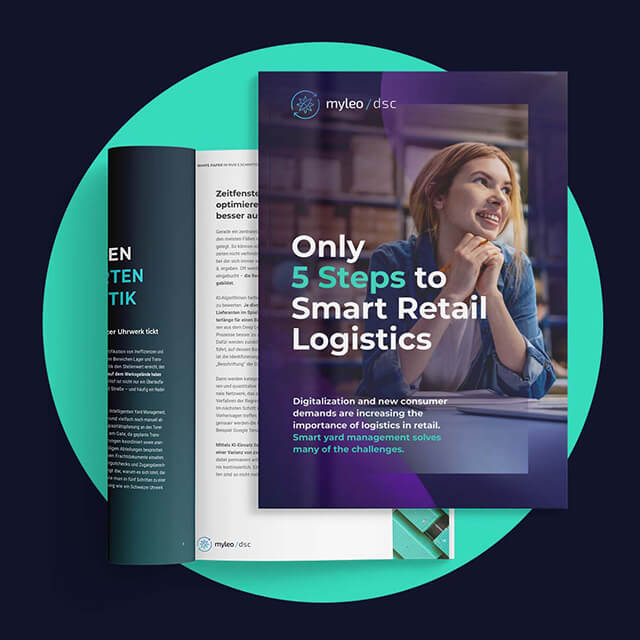A bit of digitalization here, a bit of automation there and a pinch of AI... what sounds like buzzword bingo are actually important ingredients for smart retail logistics in 2024. Our thesis: In just 5 steps, you'll be on your way to the most efficient type of operational retail logistics.
Retail logistics is often also referred to as store logistics. The aim is to make the products intended for the end consumer available exactly where they are needed, at the point of sale (POS). The handling of goods between suppliers, central warehouses, retail companies and stores is at the heart of retail logistics. This has become increasingly important in recent years, not least due to the boom in online retail.
Logistics plays a crucial role in the retail sector, especially in light of the increasing demands for flexibility, speed and reliability in the supply chain. Typical retail logistics tasks include inventory management, warehouse management, goods distribution, supply chain management and the optimization of transport and distribution processes within the supply chain.
Optimal planning is essential here in order to minimize storage times and ensure the turnover of goods. The most important question here is: How do the required items get from the supplier to the central warehouse? And from there to the stores? Coordination and communication between all parties involved are essential for an efficient flow of goods and a seamless flow of information. Yard management in particular is becoming increasingly important.
The ideal retail logistics recipe contains the following ingredients:
- Digitalization
- Automation
- Collaboration
- Real-time data
- AI
The Foundation: Digitalization
The aim of yard management is to plan internal transportation transparently and manage it economically. In order to ensure that supply chain processes run smoothly and efficiently, it is essential to maintain an overview. This requires a sophisticated authorization concept, a stringent process chain and a stable IT infrastructure. Of course, this also applies to operational operational retail logistics.
Intelligent, Digitalized Yard Management Simplifies Many Logistics Processes - Both for Suppliers and Retailers.
Important documents from the world of warehousing such as delivery bills, loading lists and other accompanying freight documents are already increasingly recognized in digital form, e.g. eCMR. Modern yard management systems must therefore support the digital exchange of documents. Overall, digitalization is an important driver for the optimization of retail logistics and makes it possible to make processes more efficient, transparent and customer-oriented and to make information flows visible for all parties involved.
Automation Simplifies the Logistics Process
The megatrends of digitalization, optimization and connectivity are nothing new in logistics. The availability and marketability of new technologies as well as the generally increased awareness of the need to rethink processes in a new and integrated way are also leading to changes in retail logistics. This is where automation comes into play. Even small automation steps in the yard can lead to enormous cost savings.
Automation at any price makes no sense here.
It is important to consider when automation brings benefits and which measures are suitable for this - the motto here is to proceed step by step.
Plant Processes with Automation Potential
- Notification of the most important information
- Entry and check-in
- Automated weighing
- Call-off for loading or unloading
- Loading and unloading process
- Check-out and exit


